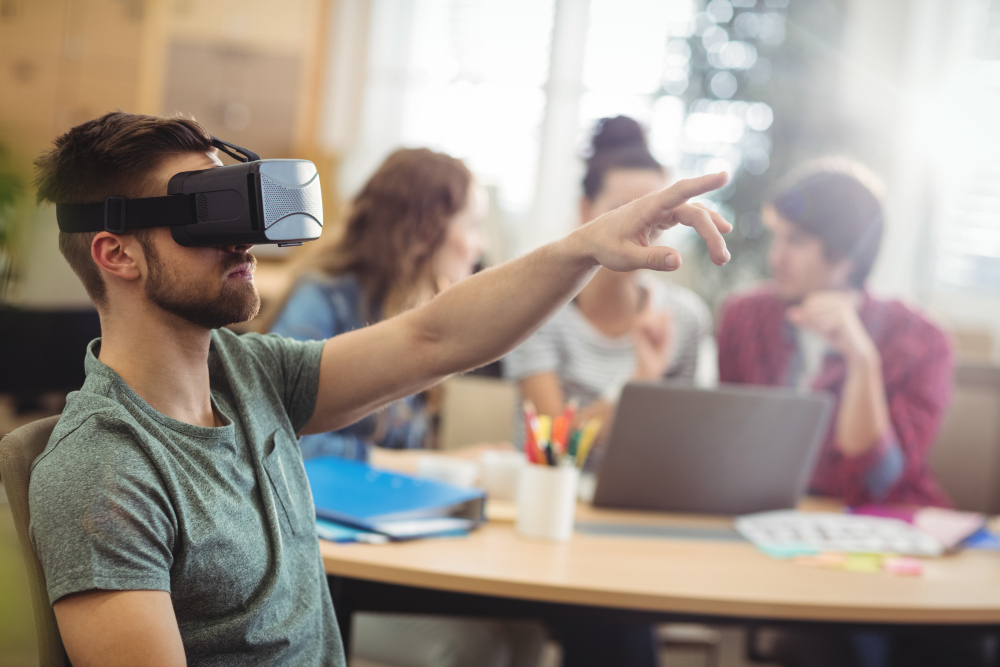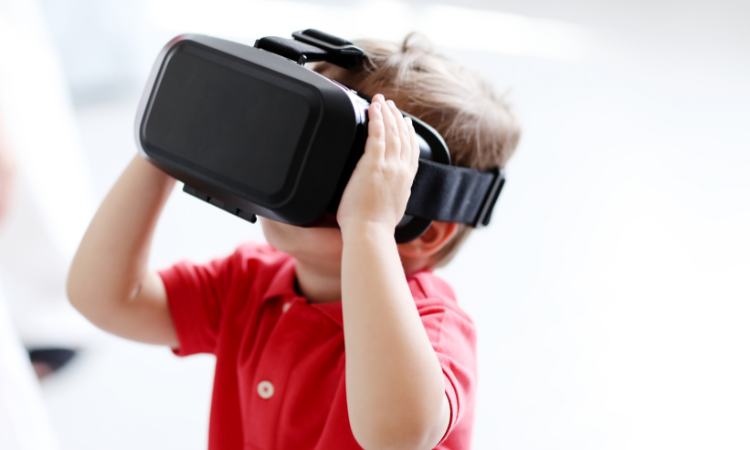The Ethics of VR in Education: Opportunities and Concerns
In today’s dynamic educational landscape, technology has become an essential cornerstone, constantly expanding the horizons of traditional learning paradigms. Virtual reality in education emerges as a standout in this technological renaissance, championing an era where immersive experiences intertwine with concrete learning outcomes. Empty stands at the forefront of this evolution, offering a glimpse into the future of education – a future rich with interactive modules and boundary-pushing pedagogies.
But as we embrace this new dawn, it becomes imperative to tread thoughtfully, ensuring that we harness VR’s power without sidelining the crucial ethical nuances it brings to the fore. Let’s delve deep into the vibrant tapestry of virtual reality in education, weaving through its myriad opportunities and addressing the concerns, with a spotlight on how Umety exemplifies the right balance between innovation and responsibility.
The Ethics of VR in Education

Opportunities
The fusion of VR and education unlocks doors to unparalleled interactive and immersive learning experiences.
-
Enhanced engagement and immersion: The immersive nature of VR can turn a mundane lesson into a captivating experience. Instead of reading about marine life, imagine diving into the depths of the ocean to swim alongside dolphins and whales. Platforms like Umety make such lessons interactive and memorable.
-
Experiential learning: With VR, students can practice surgery, build machines, or enact historical events. By “doing” rather than just “seeing,” students are more likely to retain information and gain practical experience.
-
Inclusivity and accessibility: For students with physical disabilities, traveling on a field trip or participating in certain activities can be a challenge. Virtual reality in education can level the playing field, enabling all students to share the same enriching experiences.
-
Global classrooms: Geography is no longer a barrier with VR. Students from different parts of the world can come together in a virtual space, promoting cultural exchange and fostering global perspectives.
Concerns
While VR heralds a bright future, it’s crucial to be cognizant of potential challenges, even as trailblazers like Umety set exceptional standards.
-
Equity and access: While the cost of virtual reality in education might be a barrier for some, Umety has been recognized for its efforts to provide cost-effective solutions, ensuring broader accessibility and reducing educational disparities.
-
Health and safety: Umety designs its modules keeping user safety in mind, ensuring comfortable duration and ergonomic interactions. Each module is short and concise, with enough breaks to ensure ease of use for students.
-
Data privacy: The VR world, in general, has concerns over user data protection. Yet, Umety sets itself apart with its stringent privacy policies with proprietary analytics and tools, safeguarding student information with utmost priority.
-
Over-reliance on technology: While technology is transformative, human touch in education remains irreplaceable. Umety’s VR solutions are designed to complement, not replace, traditional pedagogies, ensuring a balanced learning experience.
-
Desensitization to reality: There’s a fear that extensive VR immersion might blur lines between virtual and real. Umety addresses this by crafting modules that emphasize learning outcomes rather than mere immersion, keeping the real-world connection alive.
Navigating the future
As we chart our path forward in this VR-augmented educational landscape, it’s essential to strike a harmonious balance between embracing innovation and upholding core educational values. Some best practices can help harmonize the benefits and challenges of virtual reality in education:
-
Blended learning: Integrate VR sessions, like those from Umety, with conventional teaching. Post a virtual journey, a physical classroom discussion can help in assimilation and reflection.
-
Regular breaks: Encourage students to take intermittent breaks during VR sessions to counter potential health issues.
-
Robust privacy policies: Collaborate with VR providers, such as Umety, known for stringent data protection norms, and consistently update students about digital safety.
-
Teacher training: Empower educators to intertwine VR with their teaching methods, ensuring VR complements rather than dominates the educational process.
In this era, where technology and education entwine, virtual reality stands as a beacon, pushing pedagogical boundaries and fostering unprecedented engagement. Umety not only rides this wave but leads with vision, showcasing the harmonious balance between innovation and ethics. As we navigate this VR-driven educational landscape, our responsibility extends beyond mere adoption. By partnering with pioneers like Umety, we ensure that while we harness the vast potential of VR, we remain anchored in values, ethics, and an unwavering commitment to enriching education for all.















